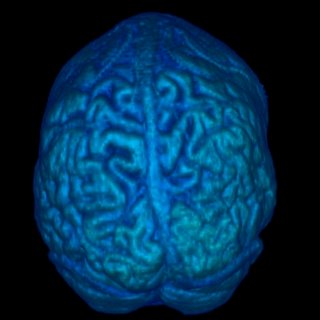O Brave New Brain...
I am currently swamped with exam marking at the moment (why is the weather always beautiful when I have grading to do?). But I have started reading a new book- Nancy Andreasen’s Brave New Brain (Oxford, 2001). I’m only on chapter 3 but it is a fascinating book and topic. I was motivated to read it by my own neglect of the issue of mental illness (which has important consequences for my research on genetics and justice). In addition to the fight to combat the debilitating effects of single-gene disorders like cystic fibrosis and multifactorial diseases like cancer and heart disease, humans are also susceptible to a variety of mental illnesses. And the efforts to prevent and treat such illnesses warrant serious concern and attention. Andreasen notes that mental illnesses are among the most common diseases: schizophrenia affects 1% of the population; manic-depression another 1%; major depression 10-20% and Alzheimer’s 15% of senior citizens. In addition to the hardships mental illness imposes on the victims and their families, such illnesses also have important economical costs. Andreasen provides a table of the top 10 causes of disability in the world and their cost in DALYs (disability-adjusted life years). At the top of the list is unipolar major depression (cost of 42, 972 DALYs); other top mental illnesses include manic-depressive illness (cost of 13, 189 DALYs) and schizophrenia (cost of 12, 542 DALYs). Compare these costs with those imposed by war (13, 134) and violence (12, 955) and you get a sense of how enormous the costs of mental illness are on every society.
Why am I reading this book and trying to learn more about the brain and mental illness? Well, it addresses my concerns with GELS- the legal, ethical and social implications of the genetic revolution. Advances in mapping the human brain go hand-in-hand with the advances made with mapping the human genome. As Andreasen puts it “Once mind and molecule meet, prevention is possible. Improvements in treatment are certain” (7). Like our physical health, our mental health is influenced by a variety of factors- both biological and environmental. The Canadian Mental Health Association has a helpful webpage that contains a number of “Mental Fitness Tips”. In the hustle and bustle of everyday life it is easy to forget about promoting our mental fitness. Not surprisingly, looking after your physical health overlaps to a large degree with caring for your mental health. The site has a number of useful tips, so take a look at the list here: http://www.cmha.ca/bins/content_page.asp?cid=2-267-353&lang=1
By learning more about the brain, and the movement towards a biomedical and neurobiological model of the brain, I hope to get a broader appreciation of what the impact of the genetic revolution might be on human wellbeing. I’ll be posting a lot more on GELS issues in the future, but for now, back to marking!
Why am I reading this book and trying to learn more about the brain and mental illness? Well, it addresses my concerns with GELS- the legal, ethical and social implications of the genetic revolution. Advances in mapping the human brain go hand-in-hand with the advances made with mapping the human genome. As Andreasen puts it “Once mind and molecule meet, prevention is possible. Improvements in treatment are certain” (7). Like our physical health, our mental health is influenced by a variety of factors- both biological and environmental. The Canadian Mental Health Association has a helpful webpage that contains a number of “Mental Fitness Tips”. In the hustle and bustle of everyday life it is easy to forget about promoting our mental fitness. Not surprisingly, looking after your physical health overlaps to a large degree with caring for your mental health. The site has a number of useful tips, so take a look at the list here: http://www.cmha.ca/bins/content_page.asp?cid=2-267-353&lang=1
By learning more about the brain, and the movement towards a biomedical and neurobiological model of the brain, I hope to get a broader appreciation of what the impact of the genetic revolution might be on human wellbeing. I’ll be posting a lot more on GELS issues in the future, but for now, back to marking!
Cheers,
Colin



<< Home